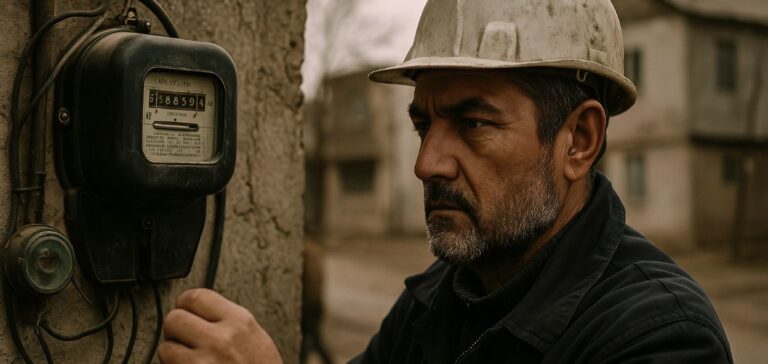Tajikistan has enacted a criminal law imposing severe penalties for electricity fraud, including prison terms of up to ten years. The decision, published by the Ministry of Energy and Water Resources on April 5, follows directives from President Emomali Rahmon. It comes as the country grapples with a chronic energy crisis, worsened by low river flows feeding its hydropower plants. These facilities generate approximately 95% of the country’s electricity but are unable to meet the growing winter demand.
The measure is among the first laws adopted by the newly elected parliament in March, dominated by the People’s Democratic Party of Tajikistan, in power for over three decades. It targets meter tampering and illegal connections, which are seen as a direct threat to economic stability. President Rahmon had already voiced concerns on March 27 over electricity losses “above standard levels” during the 2024–2025 winter season.
Legal framework and reinforced control
The Minister of Justice accused certain companies and individuals in early April of bypassing metering devices to avoid payment, deeming such practices responsible for significant economic damage. In a country where the average monthly income hovers around €220, such fraud is often viewed as an economic necessity. However, the government aims to preserve limited energy resources by stepping up enforcement against violations.
Electricity rationing is an annual practice in Tajikistan, imposed over a six-month period. The outdated grid, combined with insufficient output caused by low precipitation, leaves existing infrastructure inadequate for national demand.
A strategic project still pending
The Rogun hydropower project is central to the government’s energy strategy. This 335-metre-high dam, initiated in 1976 under the Soviet Union, is designed to generate 3,600 megawatts, equivalent to three nuclear reactors. Revived by Emomali Rahmon, the project is described as a national priority. However, despite investments now exceeding $6 billion, full commissioning remains uncertain.
The pressure placed on network users reflects the government’s intent to safeguard existing infrastructure while working to complete a project intended to meet the country’s long-term energy needs.






















